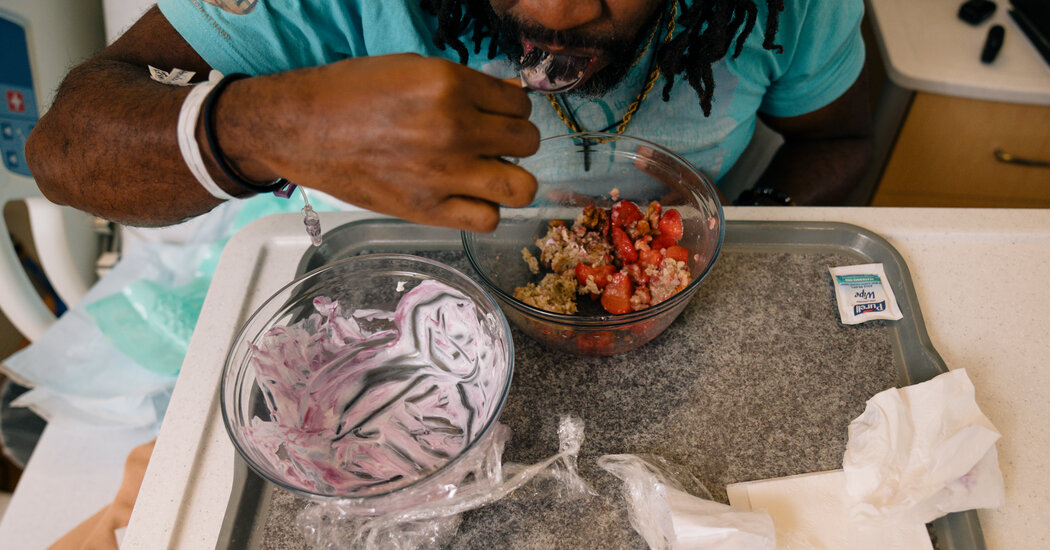It was 9 a.m. on a Friday in March, and Ernest Jones III was hungry.
From a hospital bed at a research facility at the National Institutes of Health in Maryland, he surveyed his meal tray: Honey Nut Cheerios with fiber-enriched whole milk, a plastic-wrapped blueberry muffin and margarine.
“Simple, old school,” one of those “Saturday morning breakfasts from back in the day,” said Mr. Jones, 38, who is studying to become a pastor.
He was about halfway through his 28-day stay at the N.I.H., and Mr. Jones was one of 36 people participating in a nutrition trial that is expected to be completed in late 2025. For one month each, researchers will draw participants’ blood, track their body fat and weight, measure the calories they burn, and feed them three meticulously designed meals per day.
The subjects don’t know it, but their job is to help answer some of the most pressing questions in nutrition: Are ultraprocessed foods harmful to health? Are they a major driver of weight gain and obesity? And why is it so easy to eat so many of them?
If researchers can answer these questions, they say, perhaps there are ways to make ultraprocessed foods healthier.
The Trouble With Processing
Ultraprocessed foods encompass a large range of foods and drinks that are made using methods and ingredients you wouldn’t typically use or find in a home kitchen. Sodas, processed meats and flavored yogurts are part of this category, as are most breakfast cereals, packaged breads and plant milks.
